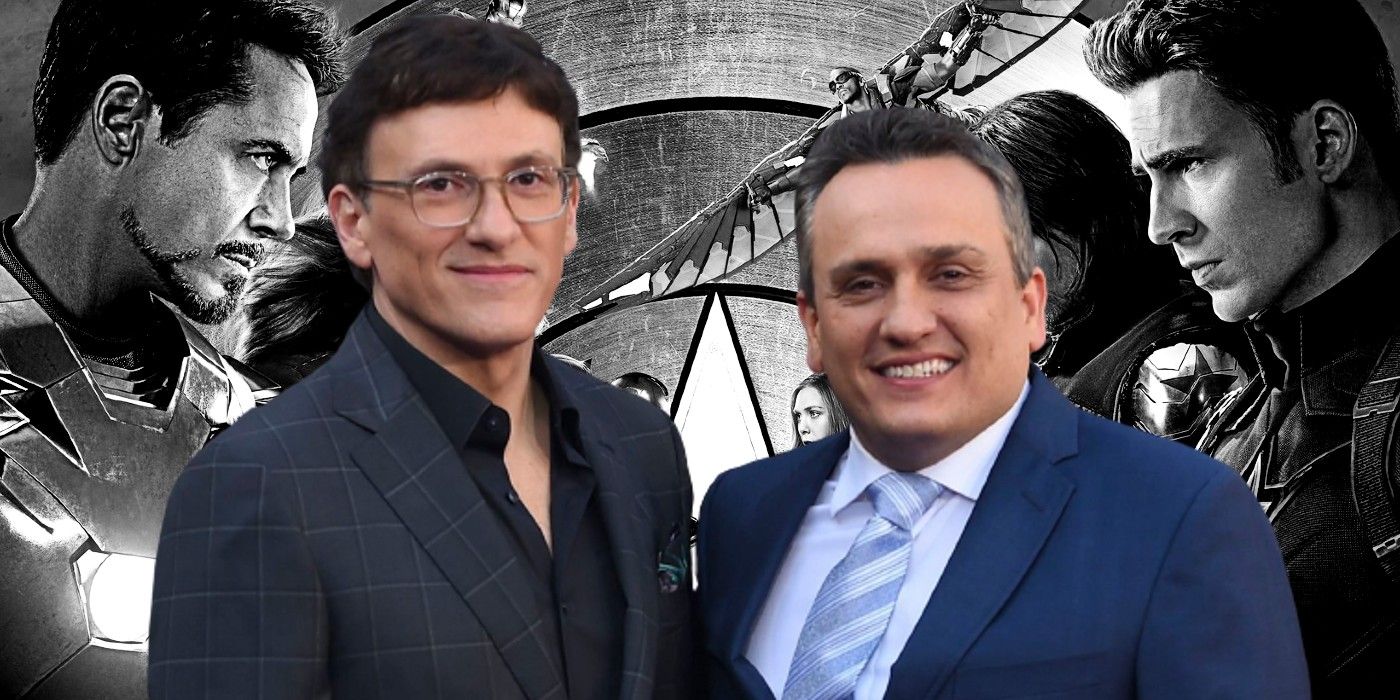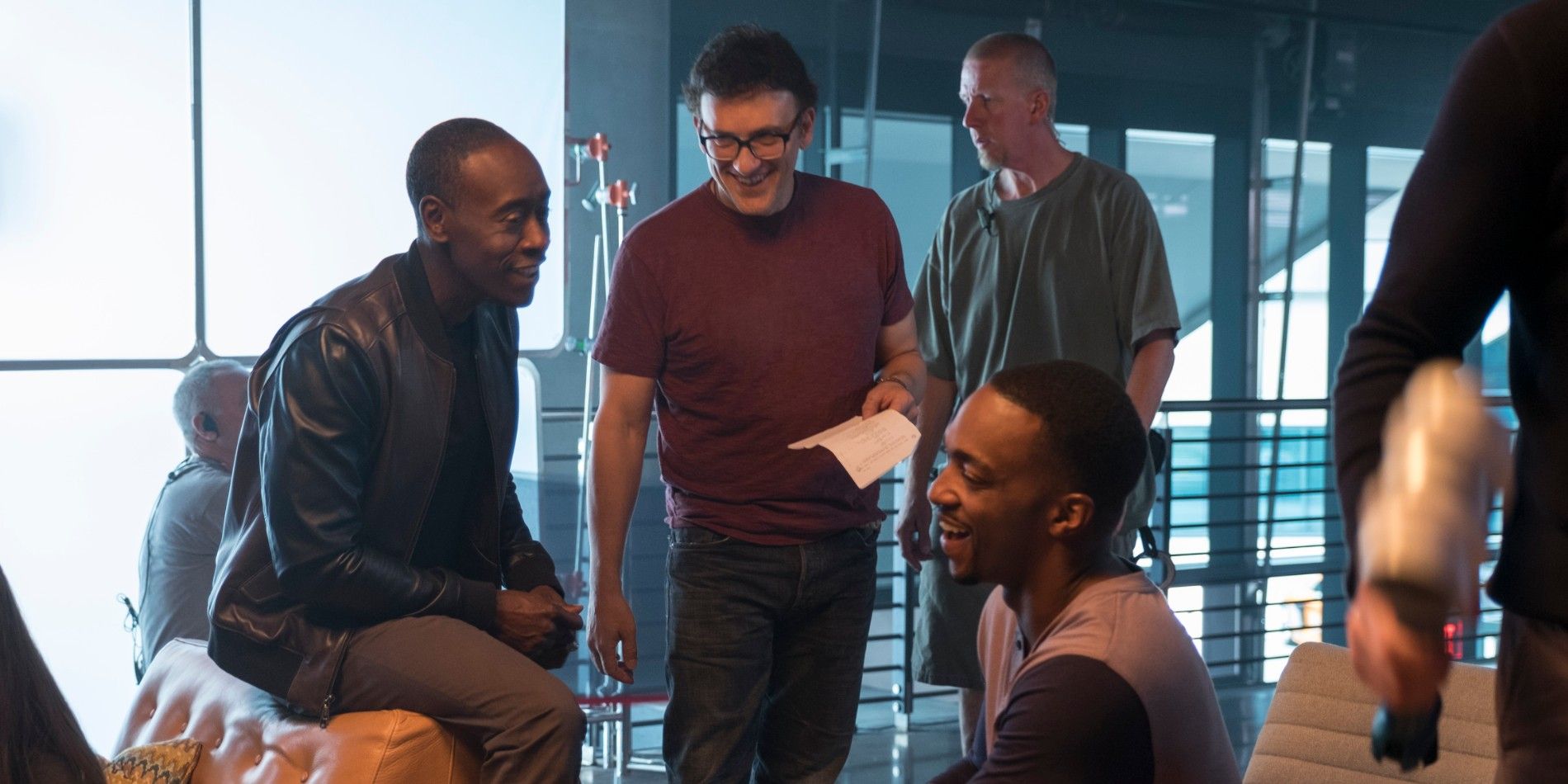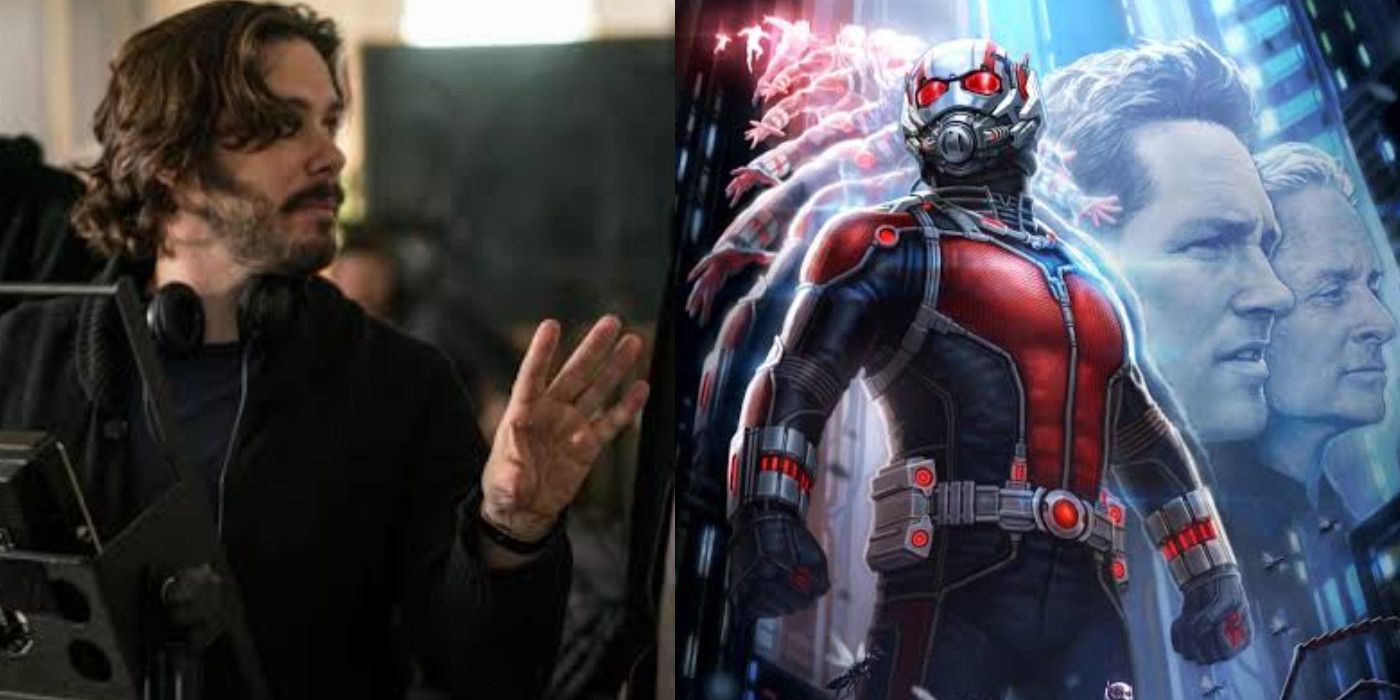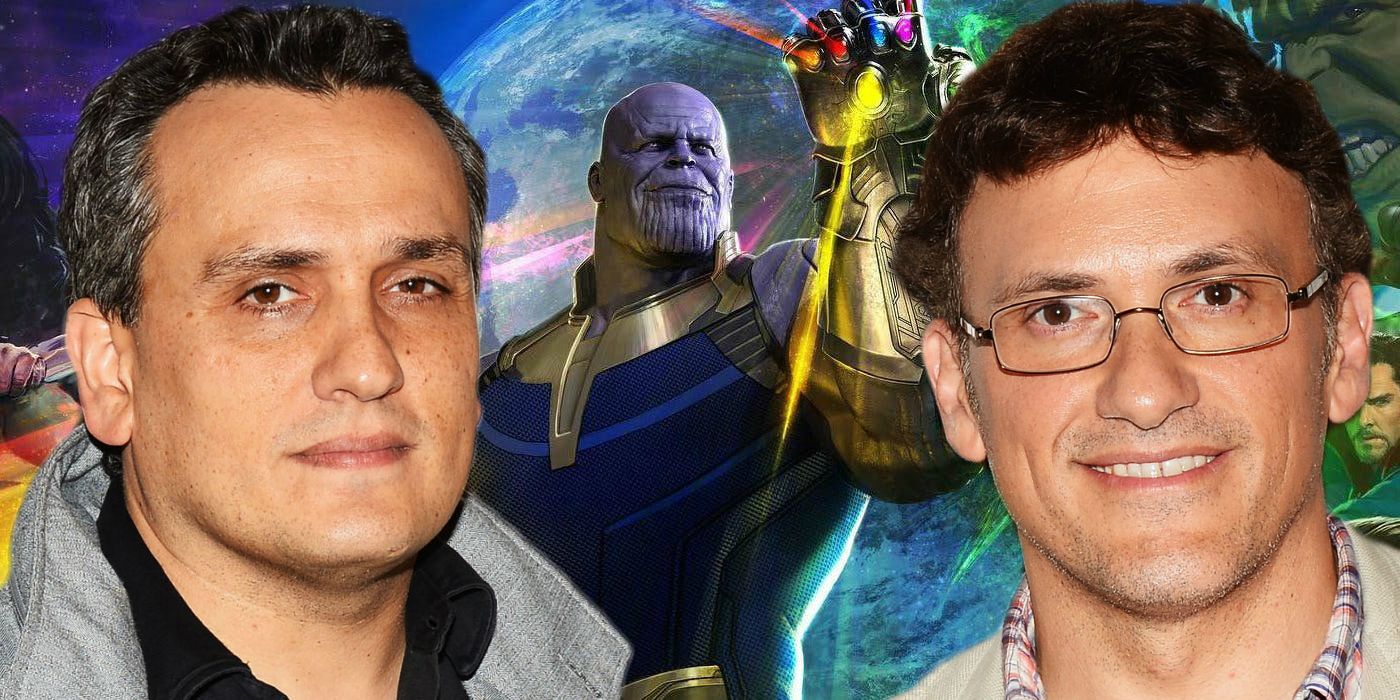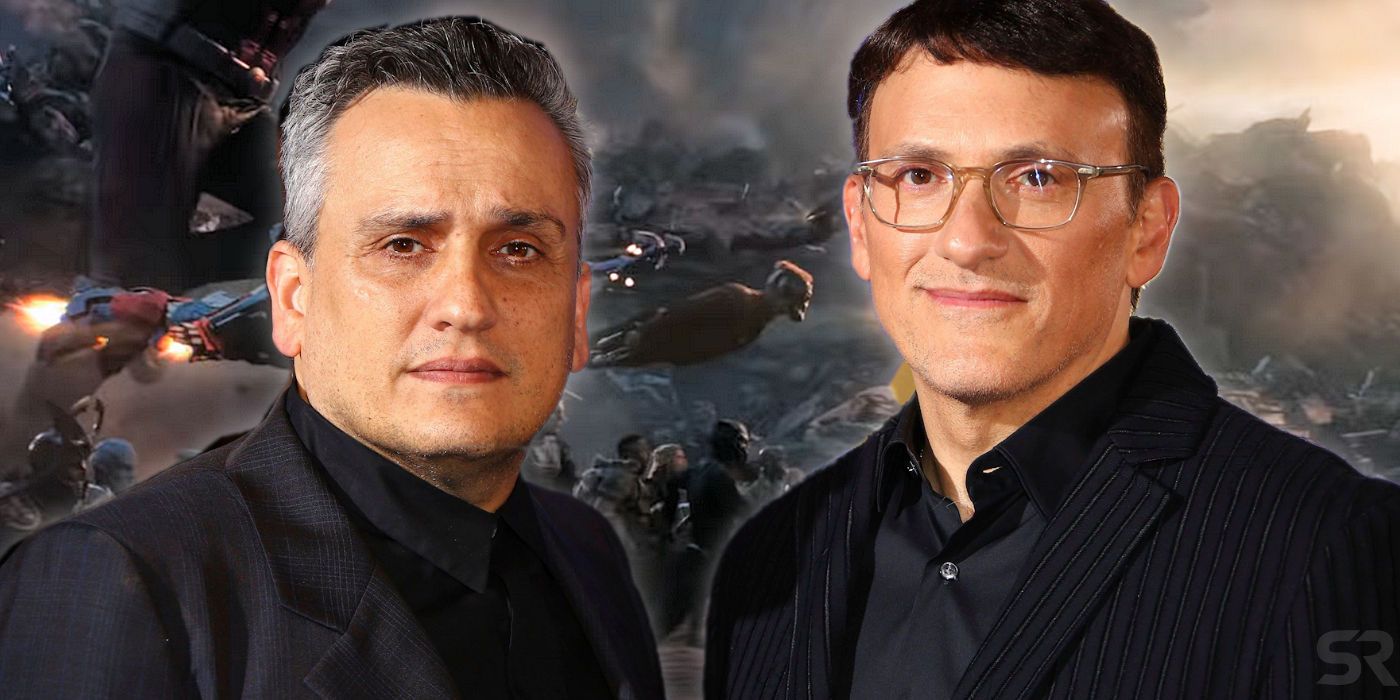Had things gone differently, Captain America: Civil War would've almost killed the Marvel Cinematic Universe's future. Released in 2016, the movie set the stage for the end of the Infinity Saga via Avengers: Infinity War and Avengers: Endgame. Directed by Joe and Anthony Russo, with the story written by Christopher Markus and Stephen McFeely, Captain America: Civil War saw the break-up of the Avengers, leaving Earth at its most vulnerable and making it easier for Thanos (Josh Brolin) to execute his nefarious plan.
Marvel Studios' big-screen adaptation of the Civil War comics narrative had a few key differences from its print source. For starters, instead of the Superhero Registration Act, the film introduced the Sokovia Accords. Mandated by the United Nations, it required all enhanced individuals to reveal their secret identities and disclose their powers in an effort to regulate their activities. Steve Rogers (Chris Evans) was against it, arguing that the safest hands were their own, while Tony Stark (Robert Downey Jr.) countered, claiming that resisting it would only make things worse for them. By the end of the film, their conflict had become personal after Iron Man learned that Captain America purposefully hid the truth about Bucky Barnes (Sebastian Stan) killing his parents while he's still the Winter Soldier. Not being able to find a middle ground forced the Avengers to break up.
In the end, Captain America: Civil War was both a critical and massive commercial hit. It earned more than $1.15 billion at the global box office against a production budget of $240 million. As the primary creative force behind the film, the Russos were credited for its success, citing the brothers' ability to effectively juggle a massive cast while also telling a cohesive narrative. However, there was a time that Joe and Anthony almost walked away from the project due to some behind-the-scenes drama. If they ended up leaving the film, it would've effectively ruined Infinity Saga's ending and the MCU's future.
Why The Russos Almost Quit Civil War
As revealed in The Story of Marvel Studios: The Making of the Marvel Cinematic Universe, the Russo Brothers were ready to quit making Captain America: Civil War due to studio politics. Back then, Marvel Studios needed to consult with the so-called Marvel Creative Committee, which offered feedback regarding the creative direction of their movies. Apparently, the now-defunct group wanted to change the ending of the threequel. Instead of Baron Zemo (Daniel Brühl) successfully pitting Captain America and Iron Man with each other, they wanted all the Avengers to team up and fight a generic army.
Joe and Anthony were upfront about wanting to leave Captain America: Civil War, if the Marvel Creative Committee continued to meddle with their creative vision. This, in turn, energized MCU mastermind, Kevin Feige. He subsequently talked to former Disney Chairman Alan Horn about the situation, and fortunately, the company executive sided with him on the matter. Shortly after, Marvel Studios was given full autonomy of their projects and the Russos were able to make the film stay true to their vision.
Marvel’s History Of Meddling With Movies
The Marvel Creative Committee was composed of individuals who would give Marvel Studios' notes about their upcoming projects. It reportedly included former Marvel Comics writer Brian Michael Bendis, Marvel Entertainment Creative Director Joe Quesada, Marvel Entertainment President Dan Buckley, and former Marvel Entertainment President Alan Fine. While this setup looked good on paper, the Marvel Creative Committee's ability to impact the MCU was often a source of frustration for Marvel Studios. In fact, there were several instances in which their mandates didn't sound good at all.
For starters, director James Gunn revealed that they suggested that Guardians of the Galaxy drop its '70s-themed soundtrack. Their notes also negatively impacted the movie's convoluted villain arc. Meanwhile, Iron Man 3 was supposed to have Maya Hansen (Rebecca Hall) as its primary villain, but the Marvel Creative Committee didn't want that because a female antagonist would supposedly sell less merchandise. Finally, Edgar Wright's decision to leave Ant-Man allegedly also had a lot to do with the aforementioned team's meddling, which almost resulted in stars Paul Rudd and Evangeline Lilly abandoning the project as well.
Why The Russos Infinity Saga Vision Was So Important
After the success of Captain America: Civil War, Marvel Studios knew that the Russo Brothers were the right people to helm both Avengers: Infinity War and Avengers: Endgame. By then, Feige and his team were on the hunt for someone new to helm another Avengers movie anyways, as The Avengers and Avengers: Age of Ultron filmmaker Joss Whedon wasn't coming back to direct the sequels. Most importantly, Whedon later admitted that he didn't have any idea how to close out the Infinity Saga. Even if he managed to return and spearhead the follow-up movies, the lack of a clear vision on his part could've potentially derailed the MCU early as well.
Meanwhile, the Russos, having directed Captain America: Civil War, already had a rough idea of how things would pan out for the Avengers after Steve Rogers and Tony Stark's falling out in relation to Thanos' arrival. It helped that they worked with Markus and McFeely twice before by the time they tackled Avengers: Infinity War and Avengers: Endgame. If anything, Captain America: Civil War was an Avengers litmus test for demonstrating their ability to wrap up the Infinity Saga. It allowed them to prove that they can handle a massive ensemble without losing sight of the film's narrative. This was especially important for Avengers: Infinity War, as not only did it have to bring all pockets of the MCU together, but it also needed to properly establish Thanos as a formidable villain.
What If The Russos Had Quit The MCU
After everything, it's difficult to imagine what the Infinity Saga and the MCU, in general, would've looked like if Avengers: Infinity War and Avengers: Endgame didn't pan out the way that they did. While both films have their respective issues, the Russos stuck the landing for the most part. The fact that both the Game of Thrones finale and Star Wars: The Rise of Skywalker were also released in 2019 and met with divisive critical response makes what the Russos achieved with the Infinity Saga more impressive. Had Joe and Anthony ended up quitting Captain America: Civil War in 2015 instead, the MCU as we know it would've been drastically different.
Even before Avengers: Infinity War and Avengers: Endgame, it's safe to say that Captain America: Civil War would've been different from what it was. The Marvel Creative Committee may have gotten their way; Steve Rogers and Tony Stark wouldn't have a serious falling out, and it would've had a generic third-act battle. Since the Avengers' split was integral to Avengers: Infinity War's story, particularly with regard to how Thanos was able to win, all of that would've changed. Maybe Thanos wouldn't have been the interesting villain that he was since the Russos were mainly credited for updating the character for his big-screen debut. Suffice to say, a lot of things would've also been altered in Avengers: Endgame.
However, arguably the biggest change that this would've brought into the MCU is the possibility that Marvel Studios may still be under the jurisdiction of the Marvel Creative Committee. As revealed by the Russos, the idea of them leaving Captain America: Civil War motivated Feige to do something about the problem. Perhaps if they ended up leaving the project, it would've been just a matter of time before the MCU architect followed suit, considering how increasingly frustrated he was also getting with the Marvel Creative Committee's meddling at that point.

